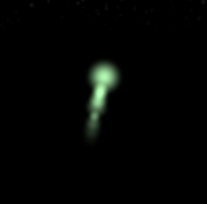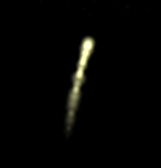Difference between revisions of "Stars"
| Line 46: | Line 46: | ||
|- | |- | ||
| Squat Canary || Pulsing || Yellow || Common || Cactus Sap || 11 || 3 || 15 || Iron || 6 || || || || [[Image:Squat_canary.png]] | | Squat Canary || Pulsing || Yellow || Common || Cactus Sap || 11 || 3 || 15 || Iron || 6 || || || || [[Image:Squat_canary.png]] | ||
| + | |- | ||
| + | | Yellow Sparkles || ? || Yellow || Red Sea || Tar || 13 || 11 || 44 || Iron || 67 || || || 44 || | ||
|- | |- | ||
|} | |} | ||
Revision as of 07:54, 14 February 2021
| Stars | ||
|---|---|---|
 |
||
| (Item) | ||
|
||
|
Sources
Stars are the individual sparks and streamers that make up a fireworks display. They are crafted in a Star Rack according to recipes taught at Universities of Art and Music.
Cost
Max Batch size is 100.
- All stars need a binder:
- Beeswax - for Comet and Ball-type stars, which diffuse in 'pulses'.
- Cactus Sap - for Comet, Ball, and Line-type stars, all of which diffuse in either pulses or as a straight line.
- Clay - for 'popper' stars, which diffuse all in one burst at the end of their fire.
- Tar - for 'sparkler' stars, which diffuse in sparks throughout their runs.
- All stars need some quantity of Sulfur and Charcoal.
- All stars need some variety of Salts of Metal. (range 5-250? salts per 10 stars) - normally 1 salt type for most stars, but two-color stars will have two salt types
- Some stars also need Aluminum Powder. (this is only required on sparkler- or bomb-type stars)
Use
Stars are used in the Test of Pyrotechnics
Available Recipes
- Every University of Art and Music teaches the two basic star recipes, Flying Frog and Squat Canary.
- New stars can be designed using a Portable Star Lab. The lab is then turned in to a University of Art and Music. Each time 7 labs have been turned in, one of the previously submitted recipes will be made available to learn from that University.
- Learning a star from a University in a region not controlled by your faction requires a small cost of 25 Gunpowder.
Please Note: By submitting the Star Labs at the SAME university, more recipes will be unlocked faster than by submitting them at different universities. Please think about this before you submit a Star Lab.
For this table, please use the cost of producing a batch of TEN (10) Stars
For Star Type, please use one of the following:
- Pulsing - these have a strong glow on the first star, and usually leave a simple trail. There is considerable variability in the size of the star, and the length of the trail. The basic frog and canary designs are this type.
- Cone (comets) - Have a strong glow at the front, and diffuse into a short 'cone' shape.
- Bomb (poppers) - These are often hard to see, since they fly their lifetime unignited, and then explode at the end. Single poppers are useful as near-invisible platforms for delivering other stars, while showers of many poppers can be an impressive finale.
- Trail ("Thin Red Line") - Long thin trails of light, often used for spirals and geometric shapes.
- Sparkler - These are typically crowd favorites. They leave a shower of sparks as a trail, usually but not always in the same color as the head of the star.
Stars are typically a single basic color, but there are occasional instances of two-color stars. In some cases, both colors are present in the star, and in others, the star has a multi-coloured trail.
See also
- Pyrotechnics Guides
Some of great displays from past tales demonstrated for us in T7: https://www.youtube.com/watch?v=6Daj7NuU5AY&feature=youtu.be (thank you for capturing it Safa)[dead link]
Required By
Produced By

